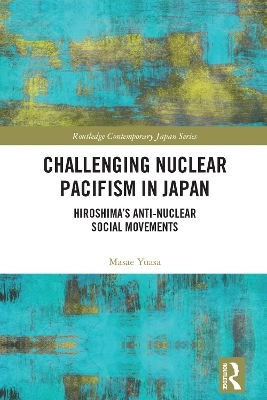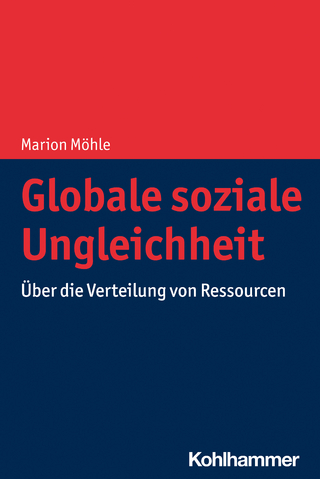
Challenging Nuclear Pacifism in Japan
Routledge (Verlag)
978-0-367-54199-6 (ISBN)
Is Japan abandoning its pacifism? The Japanese government has claimed it is doubling its defense spending and has announced a plan to equip itself with the capability to “counterattack” enemy bases overseas, a departure from the nation’s postwar consensus. Shedding new light on Japan’s pacifism and Hiroshima’s role in it, Yuasa investigates the events of postwar Japan and how it catalyzed a range of challenges to public sentiment.
Japan’s Constitution stipulates the renunciation of war and forbids using force to settle international disputes. This radical shift has been led by Fumio Kishida, the prime minister, whose constituency is Hiroshima, the atomic-bombed city symbolizing Japan’s postwar pacifism. This book is about Hiroshima’s local nuclear politics and popular consciousness about pacifism. Based on published and unpublished local documents and participant observation, it describes how postwar global and national power has formulated local politics and discusses the impact of local struggles on national and global politics. The key concept is “imaginary”. Institutionalized imaginary effectively channels people’s suppressed desires and emotions into coordinated action in the society. The current political crossroad of Hiroshima and Japan is interpreted as a terrain constructed over the last half century by three paradoxically coexisting and competing pacifist imaginaries, namely constitutional, anti-nuclear, and nuclear pacifism. They were, however, significantly destabilized by the Fukushima nuclear disaster and a newly invented “proactive pacifism”.
This book is an essential reading for scholars and students interested in Japanese postwar history and nuclear issues in general.
Masae Yuasa is a sociologist teaching in the Faculty of International Studies of Hiroshima City University, Japan. She is interested in the politics of radiation, and her related work in English includes ‘The Future of August 6th 1945’ (The Study of Time XIV, 2013, BRILL).
List of abbreviations
Acknowledgments
Introduction: competing and merging pacifist imaginaries in postwar Japan
1 Emerging constitutional pacifism
2 Lucky Dragon No. 5 incident and anti-nuclear and nuclear pacifism
3 Survivors’ parallel worlds
4 Start of Hiroshima’s anti-nuclear movement and Moritaki’s anti-nuclear imaginary
5 Movement to save survivors
6 Peace administration and institutionalized Hiroshima Heart
7 Hibakusha as storytellers
8 Hibakusha self-help movement challenging the state aid regime
9 Anti-nuclear power movement
10 Reviving constitutional pacifism in Hiroshima
11 Fukushima accident and its impact on Hiroshima
12 Post-Fukushima Hiroshima movements challenging Hiroshima pacifism
13 Hiroshima caught between proactive pacifism and the Treaty on the Prohibition of Nuclear Weapons
Conclusion: pacifism as imaginary and institution
Index
| Erscheinungsdatum | 04.10.2023 |
|---|---|
| Reihe/Serie | Routledge Contemporary Japan Series |
| Verlagsort | London |
| Sprache | englisch |
| Maße | 156 x 234 mm |
| Gewicht | 453 g |
| Themenwelt | Sozialwissenschaften ► Politik / Verwaltung |
| Sozialwissenschaften ► Soziologie ► Spezielle Soziologien | |
| ISBN-10 | 0-367-54199-8 / 0367541998 |
| ISBN-13 | 978-0-367-54199-6 / 9780367541996 |
| Zustand | Neuware |
| Haben Sie eine Frage zum Produkt? |
aus dem Bereich


